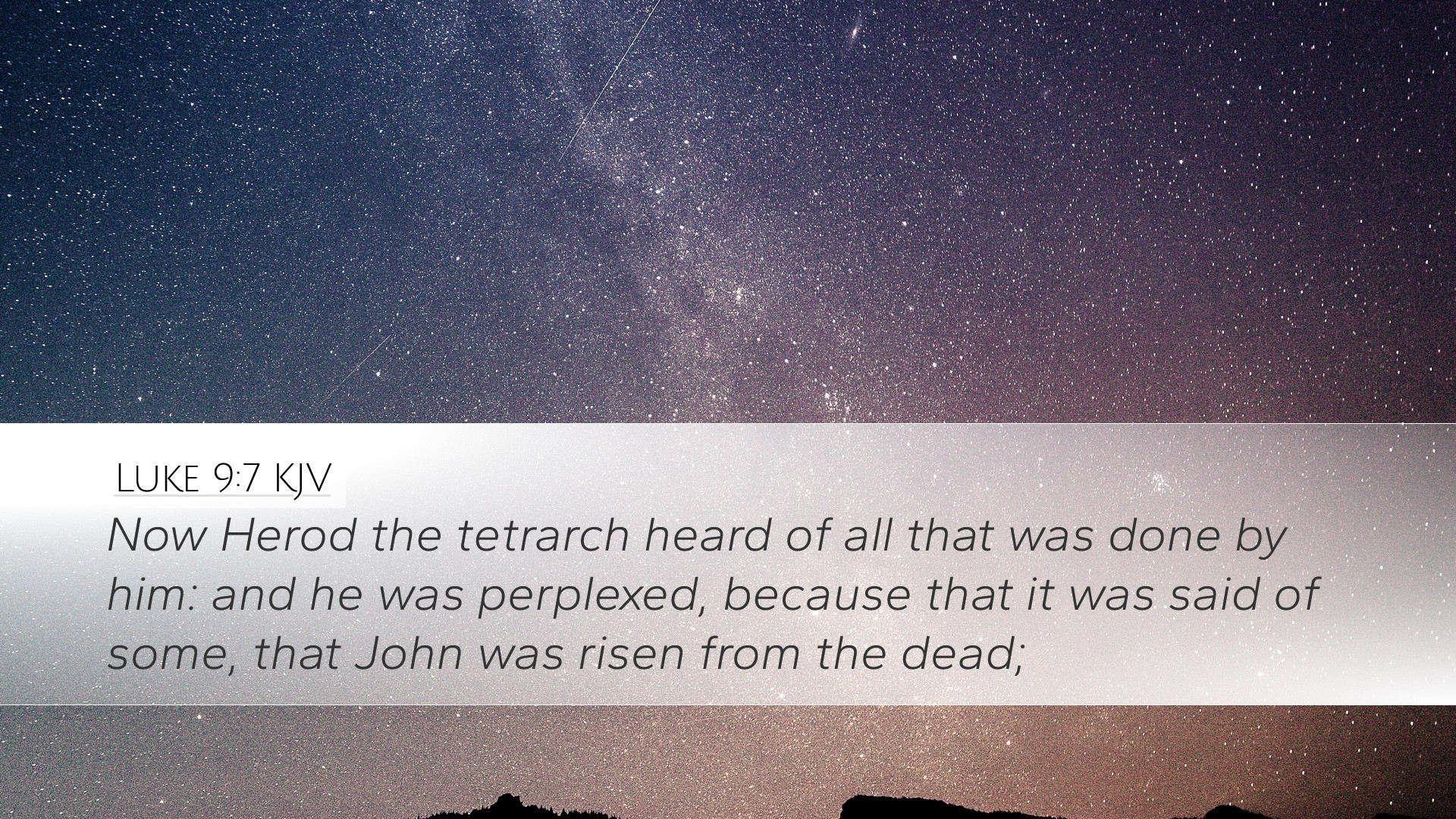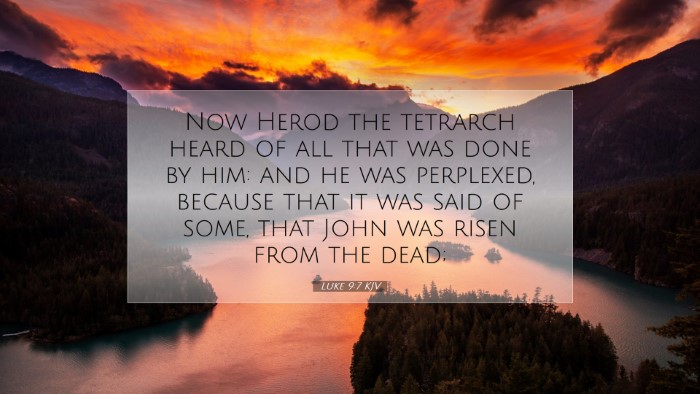Commentary on Luke 9:7
Verse Reference: Luke 9:7 - "Now Herod the tetrarch heard of all that was done by him: and he was perplexed, because that it was said of some, that John was risen from the dead;"
Contextual Background
This verse is placed within a pivotal narrative in the Gospel of Luke, where Jesus’ ministry is expanding and gaining attention among the people. After sending out the twelve disciples to preach the Kingdom of God, He returns to Herod’s domain, which prompts Herod's curiosity about Jesus' identity. Understanding the socio-political landscape is essential as it emphasizes the tensions between the ruling authority and the emerging spiritual leader.
Historical Perspectives
Matthew Henry notes the significance of Herod's perplexity, suggesting that it illustrates the unrest and spiritual confusion within the Jewish leaders concerning Jesus and John the Baptist. Herod, having executed John, is startled by the rumors that Jesus might be John resurrected. This underscores the widespread impact of Jesus' ministry and its connection to prophetic figures of the past.
Albert Barnes emphasizes the personal dimension of Herod's inquiry. Herod's concern is not merely political—he represents a man plagued by guilt and fear of divine retribution. His curiosity about Jesus, who is now the center of public attention, reflects a deep internal conflict stemming from his actions against John the Baptist.
Adam Clarke provides additional background about Herod, depicting him as a ruler driven more by superstition and paranoia than by reason. Herod’s bewilderment about Jesus indicates a recognition that Jesus’ ministry could threaten his power, leading to a frantic assessment of the situation.
Literary Features
Theological Insights
Perplexity of Authority: Herod’s confusion serves as a theological pivot point. The acknowledgment of Jesus’ extraordinary acts invokes a divine aura that ultimately transcends human politics. Matthew Henry mentions that worldly rulers may feel threatened by the truth of the Gospel, leading to attempts to suppress it due to an inherent recognition of their own moral failings.
Recognition of Prophetic Fulfillment: The crowd’s speculation that Jesus is John resurrected reflects a Jewish expectation of prophetic fulfillment. Albert Barnes notes that this reveals a belief in resurrection and expects the arrival of prophets, indicating a deep-seated hope for redemption during a time of political oppression.
The Nature of Fear and Guilt
Adam Clarke draws attention to the cosmic order where truth confronts guilt, suggesting that Herod's reflection embodies a broader spiritual reality—those who oppose God are often haunted by their deeds. This serves as a reminder to modern readers of the innate human struggle between sin and salvation.
Contemporary Applications
- Spiritual Leader's Response: Pastors today can draw parallels from Herod’s response to encourage authenticity in confronting one’s actions. Recognizing one’s flaws is the first step toward redemption.
- Engagement with Doubt: The perplexity shown by Herod can be seen in our communities where people grapple with questions of faith. Church leaders are urged to engage with doubts and inquiries of both believers and non-believers.
- Understanding Authority: Understanding the relationship between faith and authority is crucial. Herod’s reaction shows that earthly power struggles against divine truth—a reality that remains true in contemporary society.
Conclusion
Luke 9:7 serves as a profound illustration of the conflict between human authority and divine truth. The insights compiled from traditional commentaries by Matthew Henry, Albert Barnes, and Adam Clarke collectively foster a deeper understanding of this multifaceted verse, revealing themes of guilt, identity, and the inherent call for humility among leaders in the face of the Gospel. This passage invites readers—pastors, students, theologians, and scholars alike—to reflect upon their own lives and the broader implications of Jesus’ ministry in confronting the powers of this world.


